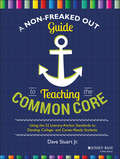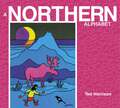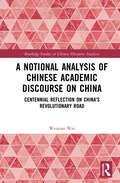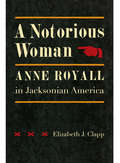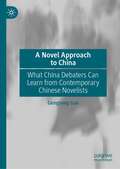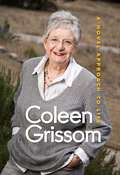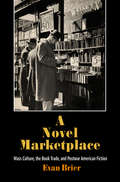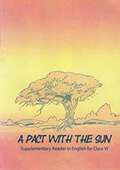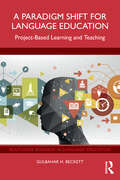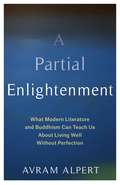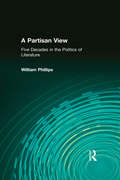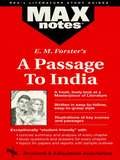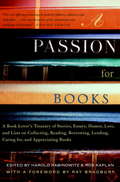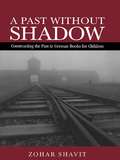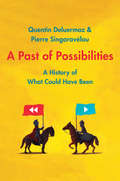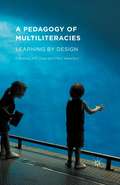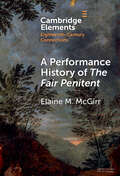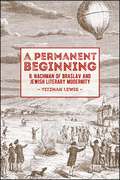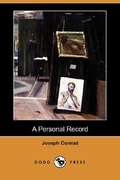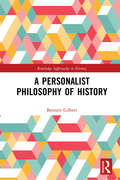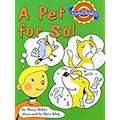- Table View
- List View
A Non-Freaked Out Guide to Teaching the Common Core
by Dave Stuart Jr.Implement the Common Core for ELA without all the stress A Non-Freaked Out Guide to Teaching the Common Core uses the often-neglected anchor standards to get to the heart of the Common Core State Standards (CCSS)--teaching students the skills they need to be college and career ready. Each anchor standard is broken down into its key points, and a discussion of each anchor standard's central purpose helps outline the context for each required skill. This easy-to-read guide gives educators the kind of clear explanations, examples, and strategies they need to feel comfortable teaching the CCSS, and shows how CCSS skills can be integrated into virtually any existing lesson plan. Getting a firm grasp of the anchor standards is the quickest way to start teaching the key concepts of the CCSS, and this user-friendly guide is designed to pave the way for both the first-time teacher and the experienced pro.
A Northern Alphabet (ABC Our Country)
by Ted HarrisonA is for Arctic, B for Bering Sea, C for Clyde River – and Z for Zangeza Bay – all to be explored above the 60th parallel.
A Notional Analysis of Chinese Academic Discourse on China: Centennial Reflection on China’s Revolutionary Road (Routledge Studies in Chinese Discourse Analysis)
by Weixiao WeiNotional Analysis of Chinese Academic Discourse on China presents an executive summary of Chinese academic discourse about China’s progress and achievements in the past one hundred years. Using a scientometric method to analyze bibliographic records retrieved from the largest library database in China on aspects of Chinese Studies, this book offers an insider’s view regarding social, cultural, historical and political aspects of China that have never been systematically published in English before. This book first follows a quantitative approach using bibliometric analysis to identify keywords in the Chinese academic works about China in conceptual clusters for the past hundred years. Then a qualitative method is adopted to select significant and representative discourses within each conceptual cluster. By helping to establish two-way communication and facilitate mutual understanding, this book holds great potential for helping to resolve conflict and promoting peace. This book offers an eye-opening experience for anyone studying or researching Chinese Studies, including related subjects such as Chinese language, culture and education, or a broader subject within global politics, economy, sociology and culture, which acknowledges China as a major player in the field.
A Notorious Woman: Anne Royall in Jacksonian America
by Elizabeth J. ClappDuring her long career as a public figure in Jacksonian America, Anne Royall was called everything from an "enemy of religion" to a "Jackson man" to a "common scold. " In her search for the source of such strong reactions, Elizabeth Clapp has uncovered the story of a widely read woman of letters who asserted her right to a political voice without regard to her gender. Widowed and in need of a livelihood following a disastrous lawsuit over her husband’s will, Royall decided to earn her living through writing--first as a travel writer, journeying through America to research and sell her books, and later as a journalist and editor. Her language and forcefully expressed opinions provoked people at least as much as did her inflammatory behavior and aggressive marketing tactics. An ardent defender of American liberties, she attacked the agents of evangelical revivals, the Bank of the United States, and corruption in government. Her positions were frequently extreme, directly challenging the would-be shapers of the early republic’s religious and political culture. She made many enemies, but because she also attracted many supporters, she was not easily silenced. The definitive account of a passionate voice when America was inventing itself, A Notorious Woman re-creates a fascinating stage on which women’s roles, evangelical hegemony, and political involvement were all contested.
A Novel Approach to China: What China Debaters Can Learn from Contemporary Chinese Novelists
by Gengsong GaoThis book explores Chinese novelists’ distinctive contributions to the China debate in terms of the key issues of Chinese language, power dynamics and Confucian tradition. As China is rising, Chinese scholars and policymakers are debating heatedly over China’s past, present and future. Who are the major debaters? How do they analyze China’s problems and figure out solutions? What are the main achievements and weaknesses of the Chinese intellectual debate and discourse? Chinese novelists also get involved in the China debate. However, their voices are rarely heard. This book argues that, by dramatizing the diversities of ordinary social actors’ everyday languages, active discursive practices and enchanted local traditions, Chinese novelists do not merely illustrate the dominant liberal, the New Left and the New Confucian ideologies, but enrich the China debate and provide a “novel” approach to our understanding of modern China.
A Novel Approach to Life
by Coleen GrissomAs an administrator and teacher at San Antonio's Trinity University for five decades, Coleen Grissom saw the rise of feminism, the sexual revolution, and the tragic deaths of students, friends, and family. This varied collection assembles the best of her speeches probing these and other timely issues, from drug use and freedom of speech to AIDS and racism. More than the sum of its parts, this book, filigreed with pithy literary insights, offers an astute chronicle of its times that gives readers good reasons to embrace literature and life.
A Novel Approach to Life
by Coleen GrissomAs an administrator and teacher at San Antonio's Trinity University for five decades, Coleen Grissom saw the rise of feminism, the sexual revolution, and the tragic deaths of students, friends, and family. This varied collection assembles the best of her speeches probing these and other timely issues, from drug use and freedom of speech to AIDS and racism. More than the sum of its parts, this book, filigreed with pithy literary insights, offers an astute chronicle of its times that gives readers good reasons to embrace literature and life.
A Novel Marketplace: Mass Culture, the Book Trade, and Postwar American Fiction
by Evan BrierAs television transformed American culture in the 1950s, critics feared the influence of this newly pervasive mass medium on the nation's literature. While many studies have addressed the rhetorical response of artists and intellectuals to mid-twentieth-century mass culture, the relationship between the emergence of this culture and the production of novels has gone largely unexamined.In A Novel Marketplace, Evan Brier illuminates the complex ties between postwar mass culture and the making, marketing, and reception of American fiction. Between 1948, when television began its ascendancy, and 1959, when Random House became a publicly owned corporation, the way American novels were produced and distributed changed considerably. Analyzing a range of mid-century novels—including Paul Bowles's The Sheltering Sky, Ray Bradbury's Fahrenheit 451, Sloan Wilson's The Man in the Gray Flannel Suit, and Grace Metalious's Peyton Place—Brier reveals the specific strategies used to carve out cultural and economic space for the American novel just as it seemed most under threat. During this anxious historical moment, the book business underwent an improbable expansion, by capitalizing on an economic boom and a rising population of educated consumers and by forming institutional alliances with educators and cold warriors to promote reading as both a cultural and political good.A Novel Marketplace tells how the book trade and the novelists themselves successfully positioned their works as embattled holdouts against an oppressive mass culture, even as publishers formed partnerships with mass-culture institutions that foreshadowed the multimedia mergers to come in the 1960s. As a foil for and a partner to literary institutions, mass media corporations assisted in fostering the novel's development as both culture and commodity.
A Pact with the Sun: Supplementary Reader class 6 - NCERT - 23
by National Council of Educational Research and Training"A Pact with the Sun" is an engaging supplementary reader in English for Class VI by NCERT, presenting a collection of heartwarming stories that explore various themes and emotions. This anthology introduces young readers to narratives filled with moral lessons, human values, and insightful experiences. The book comprises stories that range from a boy's encounter with a genie to tales of friendship, bravery, and compassion. Each story is crafted to captivate the imagination of students while instilling important life lessons. Through relatable characters and diverse situations, the book encourages readers to reflect on the significance of integrity, honesty, empathy, and perseverance. The anthology serves as a catalyst for nurturing young minds, fostering their moral development, and promoting critical thinking by delving into the complexities of human nature and relationships. Overall, "A Pact with the Sun" stands as a compelling resource that combines entertainment with valuable lessons, making it an enriching read for students.
A Paradigm Shift for Language Education: Project-Based Learning and Teaching (Routledge Research in Language Education)
by Gulbahar H. BeckettThis book investigates the argument for the significance and necessity of project-based learning and teaching (PBLT), as it becomes increasingly important in language education.Drawing on research and professional literature spanning over 100 years, it explores the research foundations and the historical and theoretical antecedents of PBLT, articulating the application of PBLT as a valuable approach for second language education pedagogy and research. Utilizing qualitative classroom research conducted in Canada, it then moves to address key concerns surrounding the difficulties of effectively implementing PBLT with existing curriculum and keeping track of content acquisition, cognitive and social skills development, and language learning.Authoritatively written, and offering fresh insight into how the field can be advanced by engaging second language (L2) students in deeper learning and higher order thinking with 21st-century PBLT contextually, situationally, and multimodally, it makes a valuable pedagogical and research contribution that benefits practitioners and researchers in the field. As such, it will appeal to researchers, faculty, and L2 professionals with interests in L2 education, multimodal teaching and learning, and applied linguistics.
A Parents' and Teachers' Guide to Bilingualism
by Colin BakerIn this accessible guide to bilingualism in the family and the classroom, Colin Baker delivers a realistic picture of the joys and difficulties of raising bilingual children. The Q&A format of this book makes it the natural choice for the busy parent or teacher who needs an easy reference guide to the most frequently asked questions. This revised edition includes more information on bilingualism in the digital age, and incorporates the latest research in areas such as neonatal language experience, multilingualism, language mixing and the effect that siblings have on family language choice.
A Partial Enlightenment: What Modern Literature and Buddhism Can Teach Us About Living Well Without Perfection
by Avram AlpertIn many ways, Buddhism has become the global religion of the modern world. For its contemporary followers, the ideal of enlightenment promises inner peace and worldly harmony. And whereas other philosophies feel abstract and disembodied, Buddhism offers meditation as a means to realize this ideal. If we could all be as enlightened as Buddhists, some imagine, we could live in a much better world. For some time now, however, this beatific image of Buddhism has been under attack. Scholars and practitioners have criticized it as a Western fantasy that has nothing to do with the actual experiences of Buddhists.Avram Alpert combines personal experience and readings of modern novels to offer another way to understand modern Buddhism. He argues that it represents a rich resource not for attaining perfection but rather for finding meaning and purpose in a chaotic world. Finding unexpected affinities across world literature—Rudyard Kipling in colonial India, Yukio Mishima in postwar Japan, Bessie Head escaping apartheid South Africa—as well as in his own experiences living with Tibetan exiles, Alpert shows how these stories illuminate a world in which suffering is inevitable and total enlightenment is impossible. Yet they also give us access to partial enlightenments: powerful insights that become available when we come to terms with imperfection and stop looking for wholeness. A Partial Enlightenment reveals the moments of personal and social transformation that the inventions of modern Buddhism help make possible.
A Partisan View: Five Decades in the Politics of Literature
by William PhillipsSince its founding in 1937, "Partisan Review" has been one of the most important and culturally influential journals in America. Under the legendary editorship of William Phillips and Philip Rahv, "Partisan Review" began as a publication of the John Reed Club, but soon broke away to establish itself as a free voice of critical dissent. As such, it counteracted the inroads of cultural Stalinism and took up the fight for aesthetic modernism at a time when the latter was fiercely contested by both the political left and right. In this work, William Phillips offers an account of his own part in the magazine's eventful history. As the magazine's editor, Edith Kurzweil, notes in her introduction, many of the literary and political disagreements that famously marked "Partisan Review"'s history originated in the editors' initial adherence to a programme of radical politics and avant-gardism. Although this proved increasingly unworkable, Phillips and Rahv, even from the outset, never allowed sectarian narrowness to determine the magazine's contents. Over the decades, "Partisan Review" published work by authors as far from radicalism as T.S. Eliot and Wallace Stevens or from Marxist orthodoxy as Albert Camus and George Orwell. In literature, its contributors were as stylistically and intellectually varied as Saul Bellow, Vladimir Nabokov, Robert Lowell and Isaac Bashevis Singer. In short, "Partisan Review" featured the best fiction, poetry and essays of the 1940s and postwar decades. Beyond its literary preeminence, Partisan Review was famed as the most representative journal of the New York Intellectuals.
A Passage to India (MAXNotes Literature Guides)
by Ann WoodREA's MAXnotes for E. M. Forster's A Passage to India MAXnotes offer a fresh look at masterpieces of literature, presented in a lively and interesting fashion. Written by literary experts who currently teach the subject, MAXnotes will enhance your understanding and enjoyment of the work. MAXnotes are designed to stimulate independent thought about the literary work by raising various issues and thought-provoking ideas and questions. MAXnotes cover the essentials of what one should know about each work, including an overall summary, character lists, an explanation and discussion of the plot, the work's historical context, illustrations to convey the mood of the work, and a biography of the author. Each chapter is individually summarized and analyzed, and has study questions and answers.
A Passage to India (SparkNotes Literature Guide Series)
by SparkNotesA Passage to India (SparkNotes Literature Guide) by E. M. Forster Making the reading experience fun! Created by Harvard students for students everywhere, SparkNotes is a new breed of study guide: smarter, better, faster. Geared to what today's students need to know, SparkNotes provides: *Chapter-by-chapter analysis *Explanations of key themes, motifs, and symbols *A review quiz and essay topicsLively and accessible, these guides are perfect for late-night studying and writing papers
A Passion for Books: A Book Lover's Treasury of Stories, Essays, Humor, Lore, and Lists on Collecting , Reading, Borrowing, Lending, Caring for, and Appreciating Books
by Rob Kaplan Harold RabinowitzTwo publishing industry veterans collect 60 classic and modern musings on the joys and perils of bibliomania. They include book care tips, resources, "The Ten Best-Selling Books Rejected by Publishers Twenty Times or More," cartoons, a bibliobibliography, and a foreword by Ray Bradbury who wrote of book-burning in . Annotation c. Book News, Inc. , Portland, OR (booknews. com)
A Past Without Shadow: Constructing the Past in German Books for Children (Children's Literature and Culture #Vol. 32)
by Zohar ShavitA Past Without Shadow examines 50 years of German children's books in which the darkest horrors of the Third Reich have routinely remained hidden. The horrors of the Third Reich are systematically screened and filtered, allowing the darker, bleaker parts of history to escape illumination. Here Zohar Shavit explores 345 German books for children describing the Third Reich and the Holocaust, and finds a shocking distortion of the past: a recurrent narrative which suggests that the Germans themselves had no hand in the suffering inflicted on the Jews. These books, Shavit argues, have created the false historical lesson that the real victims of Hitler's crimes were the German people themselves. First published to great acclaim in Hebrew and now available in English, this book is a wake-up call for anyone concerned about German children's literature and its responsibility to past and future.
A Past of Possibilities: A History of What Could Have Been
by Quentin Deluermoz Pierre SingaravelouAn exploration of hypothetical turning points in history from Ancient Greece to September 11 What if history, as we know it, had run another course? Touching on alternate histories of the future and the past, or uchronias, A Past of Possibilities encourages deeper consideration of watershed moments in the course of history. Wide-ranging in scope, it examines the Boxer Rebellion in China, the 1848 revolution in France, and the assassination of Archduke Franz Ferdinand in 1914, and integrates science fiction, history, historiography, sociology, anthropology, and film. In probing the genre of literature and history that is fascinated with hypotheticals surrounding key points in history, Quentin Deluermoz and Pierre Singaravélou reach beyond a mere reimagining of history, exploring the limits and potentials of the futures past. From the most bizarre fiction to serious scientific hypothesis, they provide a survey of the uses of counterfactual histories, methodological issues on the possible in social sciences, and practical proposals for using alternate histories in research and the wider public.
A Pattern Language: Towns, Buildings, Construction
by Christopher Alexander Sara Ishikawa Murray SilversteinThe second of three books published by the Center for Environmental Structure to provide a "working alternative to our present ideas about architecture, building, and planning," A Pattern Language offers a practical language for building and planning based on natural considerations. The reader is given an overview of some 250 patterns that are the units of this language, each consisting of a design problem, discussion, illustration, and solution. By understanding recurrent design problems in our environment, readers can identify extant patterns in their own design projects and use these patterns to create a language of their own. Extraordinarily thorough, coherent, and accessible, this book has become a bible for homebuilders, contractors, and developers who care about creating healthy, high-level design.
A Pedagogy of Multiliteracies: Learning by Design
by Bill Cope Mary KalantzisThe concept of 'Multiliteracies' has gained increasing influence since it was coined by the New London Group in 1994. This collection edited by two of the original members of the group brings together a representative range of authors, each of whom has been involved in the application of the pedagogy of Multiliteracies.
A Performance History of The Fair Penitent (Elements in Eighteenth-Century Connections)
by Elaine McGirrTheatre is the most ephemeral of art forms. It is a truism that the ephemeral performance text is divorced from the static published play text. This Element is of the eighteenth-century performance history of The Fair Penitent demonstrates the interrelation of print and performance and models how readers can recover elements of performance through close attention to text. Traces of performance adhere to the mediascape in playbills and puffs, reviews and accounts. The printed text also preserves traces of performance in notation and illustration. By analysing traces found in performance trends, casting decisions, publication histories and repertory intertexts, this Element recovers how The Fair Penitent was interpreted at different points in the century and explains how a play that bombed in its first season could become a repertory staple.
A Permanent Beginning: R. Nachman of Braslav and Jewish Literary Modernity
by Yitzhak LewisThe Hasidic leader R. Nachman of Braslav (1772–1810) has held a place in the Jewish popular imagination for more than two centuries. Some see him as the (self-proclaimed) Messiah, others as the forerunner of modern Jewish literature. Existing studies struggle between these dueling readings, largely ignoring questions of aesthetics and politics in his work. A Permanent Beginning lays out a new paradigm for understanding R. Nachman's thought and writing, and, with them, the beginnings of Jewish literary modernity. Yitzhak Lewis examines the connections between imperial modernization processes in Eastern Europe at the turn of the eighteenth century and the emergence of "modern literature" in the storytelling of R. Nachman. Reading his tales and teachings alongside the social, legal, and intellectual history of the time, the book's guiding question is literary: How does R. Nachman represent this changing environment in his writing? Lewis paints a nuanced and fascinating portrait of a literary thinker and creative genius at the very moment his world was evolving unrecognizably. He argues compellingly that R. Nachman's narrative response to his changing world was a major point of departure for Jewish literary modernity.
A Personal Record
by Joseph ConradA Personal Record is an autobiographical work (or "fragment of biography") by Joseph Conrad, published in 1912. It has also been published under the titles A Personal Record: Some Reminiscences and Some Reminiscences. <P> <P> Notoriously unreliable and digressive in structure, it is nonetheless the principal contemporary source for information about the author's life.[citation needed] It tells about his schooling in Russian Poland, his sailing in Marseille, the influence of his Uncle Tadeusz, and the writing of Almayer's Folly. It provides a glimpse of how Conrad wished to be seen by his British public, as well as being an atmospheric work of art.[citation needed] The "Familiar Preface" Conrad wrote for it includes the often quoted lines: <P> <P> "Those who read me know my conviction that the world, the temporal world, rests on a few very simple ideas; so simple that they must be as old as the hills. It rests notably, among others, on the idea of Fidelity." <P> <P> Conrad wrote a new 'Author's Note' to A Personal Record for the Doubleday collected edition of his works (published in 1920) in which he discussed his friendship with the British colonial official and writer Hugh Clifford.
A Personalist Philosophy of History (Routledge Approaches to History)
by Bennett GilbertHistorical study has traditionally been built around the placement of the human at the center of inquiry. The de-stabilized concepts of the human in contemporary thought challenge this configuration. However, the ways in which these challenges provoke new historical perspectives both expand and enrich historical study but are also weak and vulnerable in their concept of the human, lacking or omitting something valuable in our self-understanding. A Personalist Philosophy of History argues for a robust concept of personhood in our experience of the past as a way to resolve this conflict. Focused on those who know history, rather than on the abstract properties of knowledge, it extends the moral agency of persons into non-human, trans-human, and deep history domains. It describes an approach to moral life through historical experience and study, rather than through abstractions. And it describes a kind of historiography that matches factual accuracy to both the constructed nature of understanding and to unavoidable moral purpose.
A Pet for Sol (Houghton Mifflin Reading Leveled Readers: Level 2.1)
by Mercy Haber"An interesting story after reading of which think about what you have read: 1 What is Sol's problem? 2 What do Sol and his mother do at the zoo? 3 Could any of the zoo animals really be a pet? Why or why not? 4 Do you think Sol will stop asking for a pet now that his parents let him have one?"
